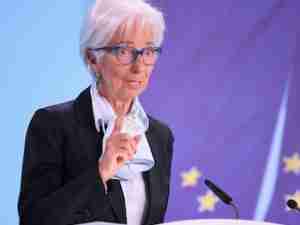Customs officials in China’s northern port of Dalian have banned Australian coal imports indefinitely, Reuters reported, citing an unidentified official at Dalian Port Group, in an escalation of tensions between the world’s biggest consumer and exporter of the fuel.
Dalian, Bayuquan, Panjin, Dandong and Beiliang harbors won’t permit Australian coal through customs, effective from the start of February, the port official said, and will cap overall coal imports for 2019 at 12 million metric tons, according to Reuters. The region imported about 13 million tons in 2017, about 7 percent of the country’s total.
Dalian port’s board secretary office declined to comment when contacted by Bloomberg. China customs and commerce ministry didn’t immediately respond to faxed requests for comment.
The ban appears to be the biggest escalation yet of simmering tensions between Australian coal exporters and Chinese importers. Chinese customs clearance of the coal shipments have been delayed by as long as 40 days, raising speculation China is targeting Australia at a time of strained relations between the two nations. The Australian dollar fell as much as 1.1 percent, the most in two weeks, to around 0.7086.
Australia’s relationship with China, its largest trading partner, have become increasingly rocky in recent years amid concerns that Beijing has been meddling in its politics, media and universities.
After then-Prime Minister Malcolm Turnbull said the meddling was a catalyst for his anti-foreign interference laws, which eventually passed in June, Australian beef and wine exporters last year blamed political concerns when their products were being held up in Chinese ports.
China has also been angered in August by Australia’s decision to ban Huawei Technologies Co. from supplying next-generation wireless equipment due to national security concerns.
China has a history of using trade to help it achieve its foreign policy goals. After South Korea’s Lotte Group agreed to sell the Korean government land for a U.S. anti-missile system known as Thaad, Chinese authorities suspended operations at more than half of the company’s stores in China for alleged fire safety violations.
During a dispute with Japan over islands in the East China Sea in 2010, Japanese trading companies found China was refusing to fill orders for rare-earth elements. Beijing never acknowledged an export ban, but no other country reported such delays.
The Philippines was also a target in 2012 during a standoff with China over the disputed Scarborough Shoal in the South China Sea. China told tourists to avoid unnecessary travel to the Philippines and increased quarantine and inspection of fruit shipped from the nation. China eventually seized control of the the shoal from the Philippines.
Australia earlier Thursday said it is seeking clarification from the Chinese government on the delays, according to an emailed statement from its trade minister Simon Birmingham. He said he’s met this week with the Minerals Council of Australia to discuss the issue, as well as the country’s representations to Chinese authorities.
On Wednesday, the head of Glencore Plc said the mining giant sees politics behind China’s move to delay customs clearances of Australian coal imports and is awaiting a resolution to the “diplomatic dispute.”
“There’s a bit of a political issue” related to delays processing Australian coal cargoes, Glencore’s Chief Executive Officer Ivan Glasenberg told analysts Wednesday after the release of the company’s financial results. “We’re waiting and monitoring to see what big effect it has, what effect it’s going to have, when they are going to resolve this diplomatic dispute.”
The views from Glencore, one of the largest miners in Australia, contrast with the position taken earlier this week by fellow mining giant BHP Group, which sees the delays as a result of China seeking to balance consumption of domestic and imported coal. Glasenberg didn’t highlight any specific political issues between the countries.
The reasons for the restrictions are unknown, Credit Suisse Group AG said in a note Thursday. “If it is geopolitical and intended to remind Australia who our key trading partners are, it may need to last several months before the price impact becomes apparent and Australian political leaders hear the message from miners,” the bank said.



